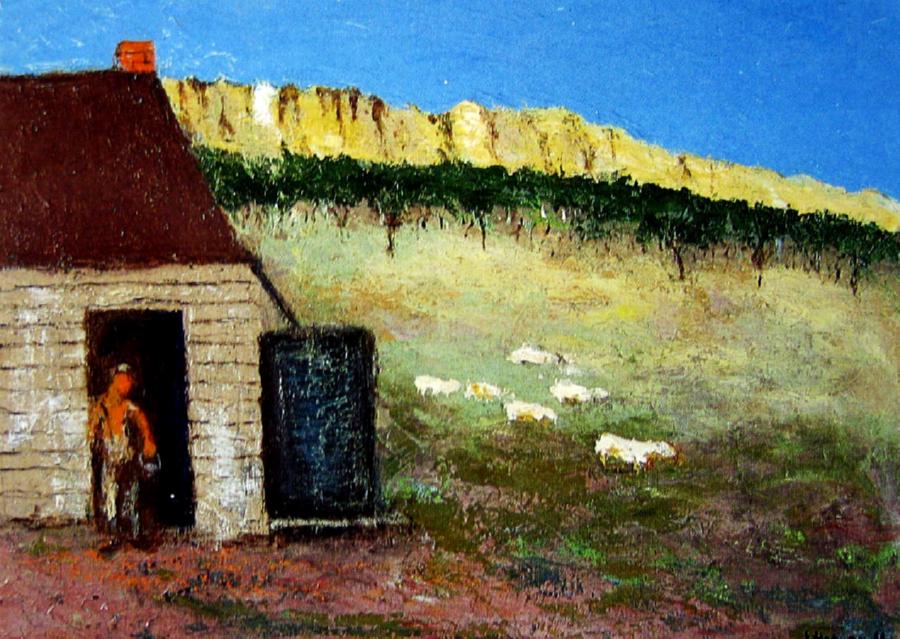Located 10 km south of Capertee on the Mudgee Road is the hamlet of Ben Bullen. While never a large village, it was certainly a more vibrant community a century ago when it had a flourishing local mining and agricultural industry. In 1909 two new residents were Annie and George Crossman who were employed by the New South Wales Government Railway. Writing as Mrs George Crossman, Annie wrote of her impressions of Ben Bullen to a friend in her home town of Penrith which was later printed in the Christmas edition of the Nepean Times of 1909. Her published letter gives us a wonderful snapshot of Ben Bullen in the years leading up to the start of the Great War.
 |
| Ben Bullen railway station |
I arrived here nine months ago on the 17th of
this month. I have found the work at post office and railway station agreeable
and pleasant, and the people are genial and affable, very generous in thought
and action. They are principally sheep-farmers. There are some splendid
orchards in the district, apples and pears being the principal fruit grown.
Last year there was a splendid crop. I’ve seen one man alone send away two tons
of apples daily in the season. Then tomatoes and potatoes are plentifully grown.
This year, however, there is a failure in nearly everything, the late frosts,
which lasted up till last week, having cut up fruit of all kinds, and the corn,
tomatoes, peas and beans are nearly all destroyed, and the continued dry
weather is drying up the grass and all vegetation, and water is getting short.
The strike has upset things a little. The timber-getters are
thrown out of work, as they were getting timber for the mines at Lithgow, Cobar
and other places. Hoskins’ limestone quarry is not doing much, the lack of coal
hindering them from running their engine to the quarry and bringing the
limestone to the station. They were short of water at first, but they soon sunk
for a spring, cutting a hole about 7ft deep and 9ft across, thus getting plenty
of water. Hoskins soon had a pumping engine at work. They have constructed two
large dams, but we have not had the rain to put water in them sufficient for
pumping purposes. The trains are not running regularly. The mail train is
running only three times a week, passenger trains have stopped altogether, and
the daily mixed train is only running three times a week. The people have not
got used to it yet, and, of course, there is a little discomfiture, as there
are no shops or stores of any kind here, the people getting their goods from
Wallerawang, Lithgow and Sydney daily. But now they often post their letters
the wrong day for the mail, and sometimes come for their goods before their
letters have left Ben Bullen. They get their meat from Rylstone by the mail
train on Friday nights.
Ben Bullen has no hotel, consequently the young men are not
seen standing around public house corners holding up verandah posts; neither do
they obstruct the footpath, for there are none. The roads are very fair. There
is only one church here, a united one. Only the Church of England and Methodist
people avail themselves of the privilege of holding services in it, however,
and as the preachers are a long distance off we don’t get service every Sunday.
The Methodist minister’s home is at Rylstone, and the Church of England’s at Capertee.
Ben Bullen church people have provided themselves with a new organ last week –
a very nice one indeed. It has a lovely tone, and the people delighted with
their newly-acquired property. Several young ladies are talking of taking
lessons, so that the organ may not be idle for want of players.
